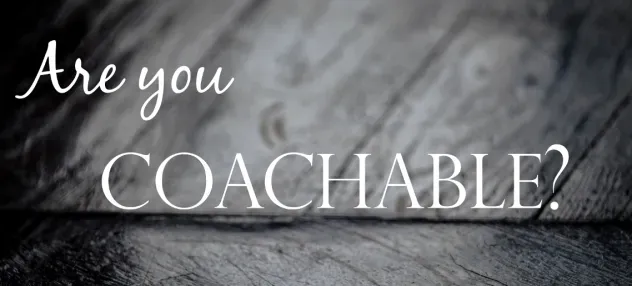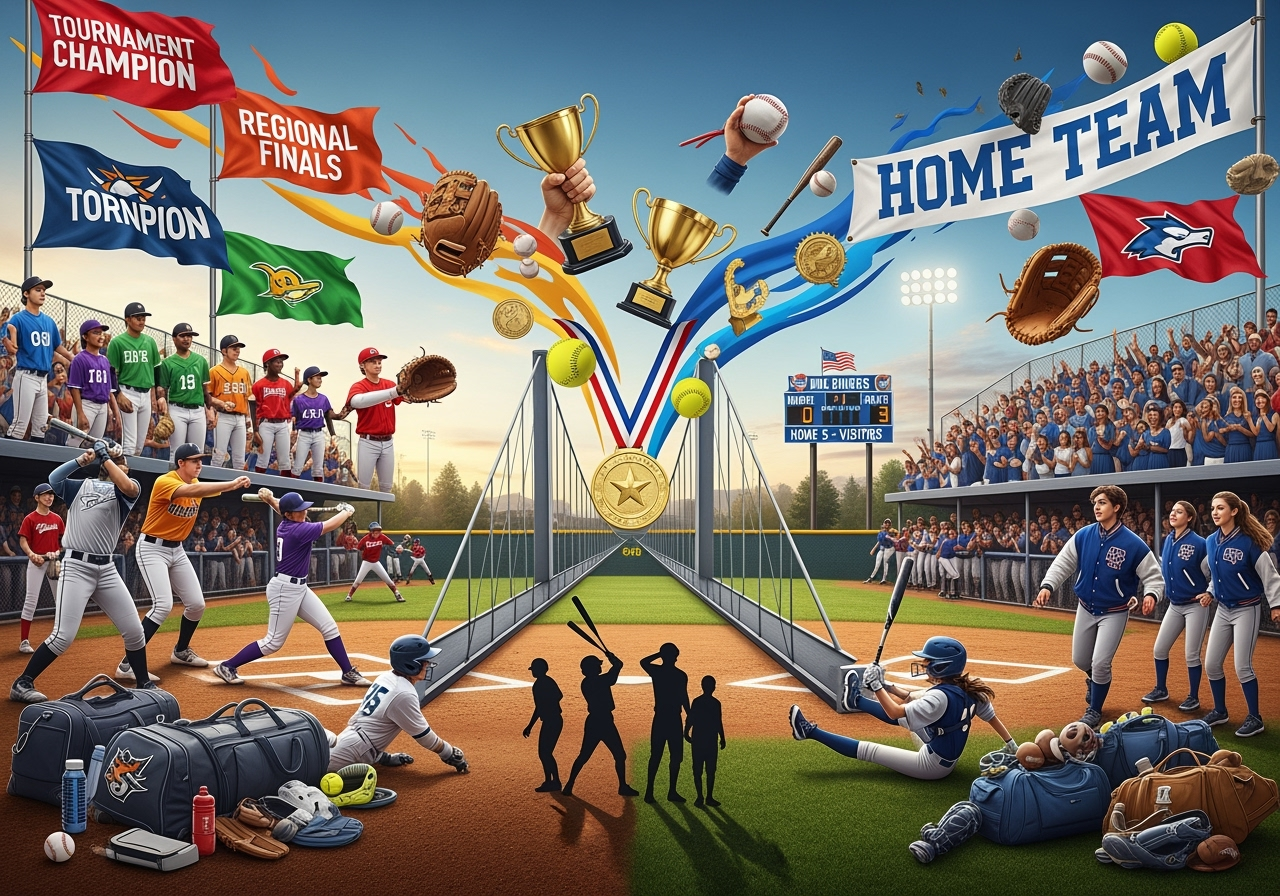Are you Coachable?

Success in sports isn’t just about physical talent—it’s about being coachable. For young athletes, embracing coachability fosters growth, teamwork, and improved performance. Here’s why this skill is essential and how parents and coaches can help nurture it.
What Is Coachability?
Being coachable means being open to learning, adapting, and growing under guidance. It involves actively listening to feedback, implementing changes, and striving to improve. Coachable athletes embrace self-awareness, recognizing their strengths and areas for growth. They ask questions, seek clarification, and engage in the learning process, creating a supportive team environment.
Why It Matters
Coachability is the foundation for continuous improvement. Athletes who accept feedback and adjust their approach see enhanced skills, better performance, and stronger relationships with their coaches. This mindset also builds resilience, helping athletes handle setbacks while staying focused on their goals.
Developing Coachable Traits
Athletes can build coachability by:
~Listening actively to coaches and teammates.
~Setting goals to focus on areas for improvement.
~Practicing self-assessment to identify strengths and weaknesses.
~Creating a safe environment for learning with support from parents and coaches.
Benefits of Coachability
~Improved Performance: Openness to feedback refines techniques and strategies, leading to better execution.
~Stronger Teamwork: Coachable athletes foster trust, collaboration, and positive team dynamics.
~Personal Growth: Skills like adaptability, resilience, and a growth mindset prepare athletes for success on and off the field.
By prioritizing coachability, young athletes unlock their potential and gain tools for lifelong success.

Picture this: A youth travel ball team rents time at a training facility. During practice, the facility owner—someone who's spent years developing athletes—notices something. A mechanical flaw. A safety concern. An opportunity for improvement. They offer a quick tip or suggestion. And the coach? They shut down. Cold shoulder. Defensive body language. Sometimes they'll hit you with the classics: "My team is the best." Or "I've been coaching this team for two years." Or the real gem: "My kid already sees a different instructor." The unspoken message rings loud and clear: Mind your business. Here's what that coach doesn't realize: they just taught their athletes a lesson. And it wasn't about baseball or softball. You're Not Being Charged for the Help When a facility owner shares coaching insight during your rental, they're not adding it to your bill. They're not trying to embarrass you. They're not implying you're incompetent. And they're definitely not trying to sell you their services. These facility owners work with athletes every single day. They see what works and what doesn't across dozens of teams, hundreds of players, and countless skill levels. When they share an observation, it's not about ego or control. It's about seeing an opportunity to help a kid improve—and taking it. That's free expertise. Free mentorship. Free insight that most people would pay good money for. Why would anyone be offended by that? "My Kid Already Sees a Different Instructor" When a facility owner offers a quick tip and you respond with "my kid already has an instructor," what you're really saying is: I think you're trying to steal my business or my athlete. But here's the reality: Nobody is trying to sell you anything. A facility owner pointing out a mechanical adjustment isn't a sales pitch. It's a professional seeing an opportunity to help and doing what professionals do—sharing knowledge. And here's another truth: even if your kid does work with a different instructor, that doesn't mean they can't benefit from additional perspective. The best athletes in the world have multiple coaches, trainers, and mentors. Your kid working with one instructor doesn't mean they've learned everything there is to know. Treating a helpful tip like a sales pitch says more about your insecurity than the facility owner's intentions. What Happens When These Kids Hit Middle School and High School Here's the reality check that every youth travel ball coach needs to hear: Your two years of coaching doesn't prepare these kids for what's coming. When your players get to middle school and high school, everything changes: They'll have multiple coaches with different philosophies. If you've taught them that there's only one right way—your way—they're going to struggle to adapt. They'll face coaches who won't coddle their ego. High school coaches don't care that your travel ball team went 25-5 last summer. They care about results, coachability, and work ethic. Kids who've been shielded from outside input will crumble under real coaching pressure. They'll compete against kids who've learned from multiple sources. While your players were being taught that accepting help from others is disloyal, their competition was absorbing knowledge from every coach, trainer, and mentor they could find. They'll need to be coachable—or they'll ride the bench. High school coaches cut players who can't take feedback. They bench athletes who get defensive when corrected. If you've modeled that behavior for two years, you've set these kids up to fail when it matters most. The talent pool gets deeper and the margin for error shrinks. That kid who dominated 12U travel ball? He's now competing against 50 other kids for 15 roster spots. The players who make it aren't always the most talented—they're the most coachable, the most adaptable, the ones who've learned from everyone around them. College scouts are watching more than skills. They're evaluating attitude, coachability, and character. A player who's been taught to dismiss coaching input sends up massive red flags. Youth travel ball is supposed to prepare kids for the next level. But when you reject collaboration and model ego-driven behavior, you're creating athletes who can't adapt to different coaching styles, get defensive when corrected, and miss development opportunities because they're too proud to accept help. And here's the brutal truth: when these kids get cut from their middle school or high school team, or when they ride the bench because they can't be coached, that's on you. Is There Really a Place for Ego in Baseball or Softball? No. There isn't. Baseball and softball are games of constant adjustment, failure, and learning. Even the best hitters fail seven out of ten times. The game humbles everyone eventually. When you reject help because you're worried about looking like you don't know something, you're bringing ego into a sport that doesn't have room for it. When you dismiss expertise because you feel threatened, you're prioritizing your feelings over your athletes' development. Ego has no place in youth sports. Period. The coaches whose players thrive at the next level? They're the ones who check their ego at the door, stay curious, remain coachable themselves, and teach their athletes to do the same. Your Athletes Are Watching Your players see everything. They watch how you handle feedback. They notice when you get defensive. They hear you dismiss expertise. When you reject help from a facility owner, here's what you're actually teaching them: Ego matters more than growth - Looking like you know everything is more important than learning something new There's only one right way—your way - This kills creativity and creates athletes who can't adapt when they hit high school Accepting help makes you weak - But high school coaches reward coachability with playing time Confidence means never admitting you don't know something - Real confidence says, "That's interesting—tell me more" Every piece of advice is a sales pitch - This cynicism will cost them opportunities at every level You think you're protecting your authority. What you're actually doing is capping your athletes' potential and setting them up to struggle when the competition gets real. We're Supposed to Be on the Same Side Facility owners aren't your competition. They're not trying to steal your team or prove they're better coaches than you. Both of you want the exact same thing—better athletes who reach their full potential and succeed at the next level. These facility owners have seen what happens to kids who make it to the next level—and what happens to those who don't. They know what high school coaches are looking for. They understand what separates the players who thrive from those who flame out. Treating their input like a sales pitch or an attack says more about your insecurity than their intentions. What Ego Actually Costs You When coaches choose ego over collaboration, everybody loses: Your athletes miss out on coaching perspectives that could prepare them for multiple coaching styles at the next level You miss out on becoming a better coach—one whose players actually succeed beyond travel ball Your players struggle at the next level because they've been taught that there's only one way to do things That's a steep price to pay just to protect your ego. Try This Next Time The next time a facility owner offers input during your practice: Actually listen instead of getting defensive Don't assume it's a sales pitch—it's someone trying to help Say thank you—even if you choose not to use the advice Show your athletes what collaborative learning looks like—they'll need that skill at the next level Remember that accepting help makes you stronger, not weaker Think about what happens when these kids face high school coaches—are you preparing them or handicapping them? The best coaches don't need to be the smartest person in every room. They just need to be smart enough to learn from everyone in it. And they need to check their ego at the door—because there's no place for it in baseball or softball, especially when you're preparing kids for the next level. Bottom Line Facility owners who share their expertise during your rental aren't trying to show you up or sell you their services. They're doing what passionate professionals do—helping athletes succeed whenever they see an opportunity and preparing them for what's coming at the next level. If that bothers you, the problem isn't them. It's you. And when your players struggle to make their middle school or high school team because they can't handle coaching from multiple sources, can't adapt to different philosophies, and get defensive when corrected? That's on you too. Your move, coach. Training with Conviction is the Standard. At Progressive Dynamix, we believe every athlete deserves access to every bit of expertise available. We're not here to replace coaches—we're here to support them, collaborate with them, and help every young athlete reach their full potential. When we offer a helpful tip, we're not trying to sell you anything. We're just trying to help kids get better and prepare them for success at the next level.

